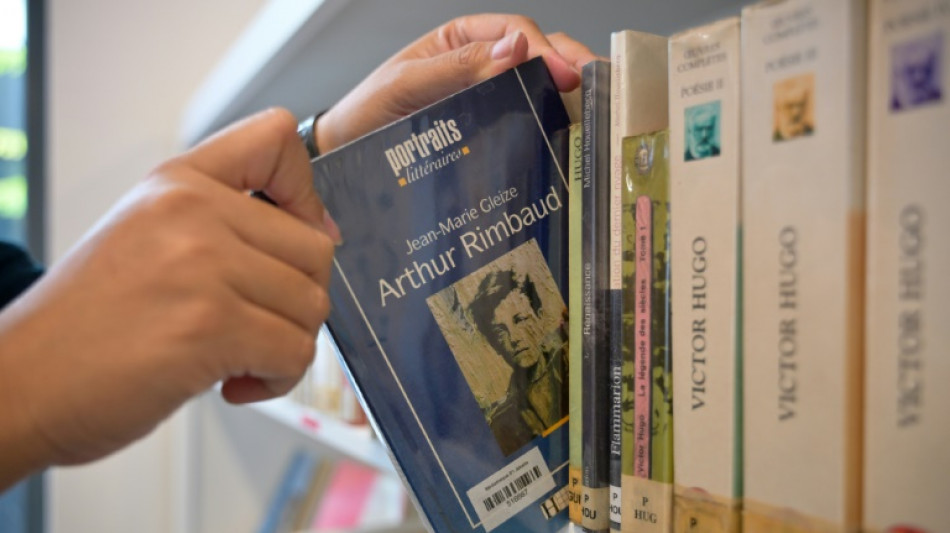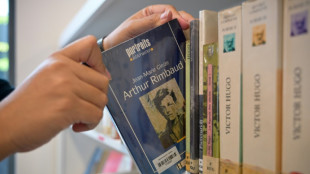

In Indonesia, French poet Rimbaud's voyage still a mystery
In the summer of 1876, rebel French poet Arthur Rimbaud arrived on the Indonesian island of Java, enlisting in the colonial Dutch army before deserting after just two weeks, an escape still shrouded in mystery nearly 150 years later.
Today in Java's Salatiga city, where coffee trees and bougainvilleas bloom, only a plaque at the entrance of the mayor's residence recognises the fleeting passage of a man who inspired writers from James Joyce to Jim Morrison.
Such has been the influence of the poet, regarded as one of France's best, that the Indonesian education and culture ministry is considering paying tribute to his Javan journey with a memorial trail.
"I believe nearly every Indonesian poet who sees poetry as an expression of the subconscious and a manifestation of surrealism has read Arthur Rimbaud at least once in their life," said Salatiga-born writer Triyanto Triwikromo.
In the poem "Bad Blood" from an 1873 collection, Rimbaud wrote: "My daytime is done; I am leaving Europe. The air of the sea will burn my lungs; lost climates will turn my skin to leather."
The poet -- whose French hometown will celebrate his 170th birthday on October 20 -- had imagined in another collection leaving for "peppery, soggy countries" and "archipelagos of stars".
He arrived in Batavia, a noisy port that served as the Dutch East Indies capital now known as Jakarta, on July 23, 1876 after signing up for six years in the colonial Dutch army, according to biographers.
Rimbaud then set sail again for Java's Semarang city, more than 400 kilometres (250 miles) away, before boarding a colonial rail network built to ferry troops and spices.
He left with fellow recruits, including some French compatriots, southward to Ambarawa town, according to Jamie James, author of 2011's "Rimbaud in Java: the Lost Voyage".
- 'Soles of wind' -
Ambarawa station is now disused and houses a railway museum, but it offers tourists steam train connections to another disused station, Tuntang, from which Rimbaud once walked the last 10 kilometres to Salatiga.
"I've never heard of Rimbaud," said Okta, a tour guide who like many Indonesians uses one name, before climbing aboard an old wooden carriage.
But "it's a fascinating story that we should tell to our visitors", she added, saying 100,000 tourists come annually, 30 percent of them foreigners.
On 15 August 1876, the author of the anti-military poem "The Sleeper in the Valley" fled his barracks before being sent off to battle in Aceh, on Sumatra island.
Authorities are now planning a memorial trail tying in with the plaque that states Rimbaud "stayed in Salatiga from 2 to 15 August 1876".
"We are open to any initiative to highlight Rimbaud's time in Java," Hilmar Farid, a director-general at the education and culture ministry, told AFP.
Sri Sarwanti, head of Salatiga's library and archives office, said they wanted to "strengthen and remind people of what Arthur Rimbaud has brought to our region".
Leaving Salatiga, a town of 1,000 at the time, compared with around 200,000 today, perhaps the poet laid low in a hut at the foot of the Merbabu volcano, taking a stab at the pastoral life he imagined in "Bad Blood".
"To swim, trample the grass, hunt, above all smoke: drink hard liquors like boiling metals -- as those dear ancestors did round the fire," he wrote.
But the final weeks in Indonesia for the poet -- who died in Marseille at 37 -- remain a mystery.
After deserting his post, it is only known that Rimbaud set sail for Europe, later arriving in Cyprus, before moving on to Yemen and Ethiopia.
韓-L.Hán--THT-士蔑報




